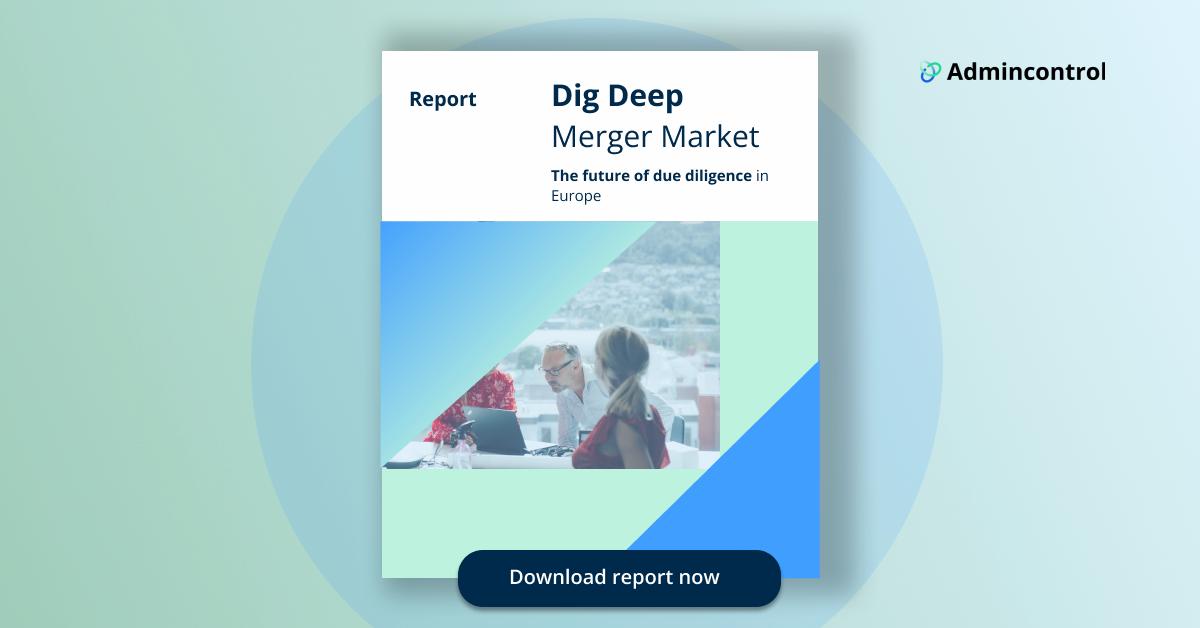There is a lot to think about when you are considering selling (or acquiring) a company, information which must be shared and questions which must be answered in a carefully controlled manner. This is precisely why investing in a Data Room has become mandatory when initiating such a process.
In addition to storing and structuring documents, a Virtual Data Room’s role is also to ensure that these sensitive documents can be securely shared in confidence with external parties. Today, more and more company transactions are taking place across national borders, which means that the need for good Data Rooms which are both intuitive and user-friendly, regardless of which language one speaks, is greater than ever before. In this article, we briefly explain the advantages of using a data room. We also give basic explanations of some of the terms that are frequently used in this context.
What actually is a virtual Data Room?
A data room is tailored to streamline and support due diligence processes. In the Data Room, the company can share confidential documentation and perform Q&A rounds in a user-friendly, intuitive and secure environment. The Data Room is designed to provide easy-to-use procedures for all parties. The solution ensures rapid, transparent and secure information sharing in the event of, for example, M&A transactions, restructuring, stock exchange listings, capital acquisition, procurements and outsourcing.
Watch our introductory video about our Data Room here:
What is a due diligence process?
Due diligence, or a company review, is a critical core aspect of restructuring processes, company divestments and the evaluation of new strategic partnerships. The company must be prepared to disclose everything from customer contacts to bonus agreements, patent certificates and much else besides. The checking of all relevant documents provides a sound basis for effective due diligence
Why use a Data Room in a due diligence process?
When carrying out a due diligence process, it is vital that you are well-prepared. This process is crucial for the final valuation of the company. Sales processes may arrive without warning, and they are always at the forefront of day-to-day operations and activities. This is a very challenging process for the company and a Data Room will simplify the process as much as possible. In a Data Room, all your documents will be well-structured and ordered. In particular, a data room is a secure distribution channel for sensitive documents.
What is an administrator in a Data Room?
An administrator has control over all users, settings and documentation in the Data Room and can add and make changes to the access rights of users. The company’s CFO and/or controller is often an administrator, but others may also be administrators, such as legal or financial advisors, and there may be a number of administrators in each company.
What is a Clean Room?
A Clean Room is essentially a Data Room in the data room which is used to share information with very limited access. The reasons for using such a room can be both numerous and complex.
What is a Clean Team in a Data Room?
Clean Rooms are normally only used by the data room’s administrator and a few of the buyer’s advisers – also known as “Clean Teams”.
What is a Q&A module in a Data Room?
A Q&A module provides a good overview of questions and answers relating to documentation and information. Q&A can be used as a simple question and answer function or provision can be made to delegate, sort and structure questions. This will be managed by a ‘gatekeeper’, who will delegate and qualify questions and answers before they are published.
What is a Client Manager?
A Client Manager assists with the start-up and administration of a data room and is available for administrator support throughout the process for extra security during the project.
This article has hopefully given you an insight into the some of the benefits of a Virtual Data Room and terms that are often used in connection with M&A processes.




